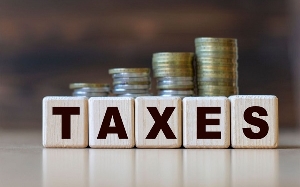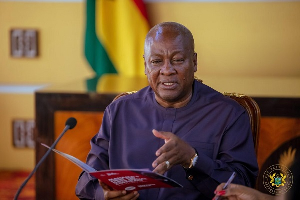Findings from Afrobarometer’s most recent survey in Ghana, conducted in September to October last year, has revealed that many Ghanaians have an aversion towards criticisms against the President, Nana Addo Dankwa Akufo-Addo.
According to the findings, the respondents – a total of 2,400 adult Ghanaians – want the government to block news and opinions that criticises or insults the President.
The findings of the report, published in full below, reveal that “majorities want the government to be able to block hate speech, i.e. information or opinions designed to attack or vilify certain groups in society (69%), as well as news and opinions that criticize or insult the president (57%). Close to half (48%) say the government should be able to limit the spread of information it disapproves of.”
The Afrobarometer is a pan-African and non-partisan survey research network that provides data on African experiences and evaluations of democracy, governance, and quality of life.
The Afrobarometer team in Ghana, led by the Ghana Center for Democratic Development (CDD-Ghana), interviewed the 2,400 respondents between 16 September and 3 October 2019.
Previous surveys were conducted in Ghana in 1999, 2002, 2004, 2008, 2012, 2014, and 2017.
The key findings in the latest report are as follows:
- Although radio and television remain the most dominant news sources, daily news consumption via social media (by 22% of Ghanaians) and the Internet (19%) is steadily increasing.
- Social media is less trusted as a source of information – only 39% of Ghanaians say they trust it “somewhat” or “a lot” – than private and public media (55% each) and government sources (54%).
- Close to eight in 10 Ghanaians (78%) say politicians and political parties spread information that they know is false. But smaller majorities also blame government officials, journalists, social media users, and activists and interest groups.
- Although an overwhelming majority (92%) of Ghanaians who have heard of social media think social media usage makes people more aware of current happenings, almost as many (86%) say it makes people more likely to believe fake news.
- One-third (32%) of Ghanaians support government regulation of access to the Internet and social media, but close to half (48%) prefer unrestricted access.
- Large majorities of Ghanaians “agree” or “strongly agree” that the government should be able to limit or prohibit the sharing of false news (77%), hate speech (69%), and news and opinions that criticise or insult the president (57%). Close to half (48%) also say the government should be able to limit the spread of information it disapproves of.
Read the full report below.
General News of Monday, 8 June 2020
Source: www.ghanaweb.com

















